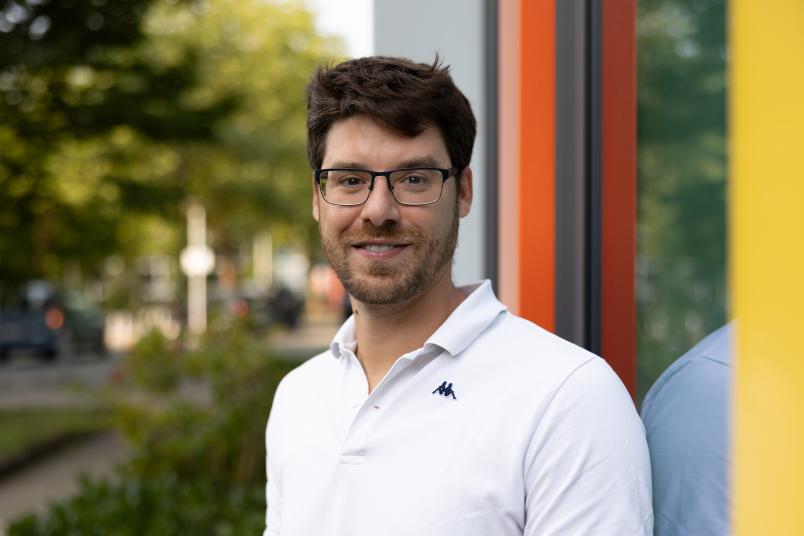
ERC Strating Grant
Cryptography for Future Applications
Lorenzo Grassi wants to revolutionize symmetric encryption in his SYMPZON project.
The symmetric encryption of data is ubiquitous. Making it fit for the future is the aim of the project “Getting SYMmetric CryPtography Out of its Comfort ZONe” - SYMPZON for short - by Dr. Lorenzo Grassi. The researcher, who works at the Cluster of Excellence Cyber Security in the Age of Large-Scale Adversaries CASA at Ruhr-Universität Bochum, has been awarded a Starting Grant by the European Research Council. The funding of around 1.5 million euros will run for five years.
Keeping information private
Our lives are profoundly affected by the digitization, and the amount of sensitive data that is shared on cloud storage grows considerably every day. Whenever sensitive data is collected, manipulated, exchanged, analyzed, and retained, symmetric cryptography is used, helping to keep sensitive and personal information private, authenticated and safe.
The most commonly used and famous symmetric cryptography algorithms are AES and Keccak/SHA-3. “Due to their importance, the entire research community focuses its attention on such schemes”, says Lorenzo Grassi. “But that doesn't just have advantages.”
The great majority of the symmetric cryptography algorithms recently published resemble them. As a matter of fact, the similarity of such schemes caused a performance flatness, with no substantial improvement recently achieved. “Besides, our understanding of their security has not fundamentally improved in the course of the last years”, explains Grassi. “Most importantly, the current symmetric cryptographic algorithms are not suitable for several rising applications of practical importance used in real life, e.g. Zero-Knowledge and Format Preserving Encryption.”
“In order to overcome these fundamental problems, it is necessary to re-think the symmetric cryptography algorithms in light of these new applications”, says Grassi. Within his ERC project, he plans to reshape the process of designing and analyzing symmetric algorithms that operate over the integer rings, by both developing a new theoretical framework, and by constructing concrete cryptographic primitives for practical use cases. “This will lead to revolutionary symmetric cryptographic schemes dedicated to targeting the rising number of applications operating over rings, with unprecedented security arguments and performances.”